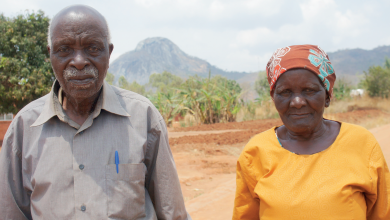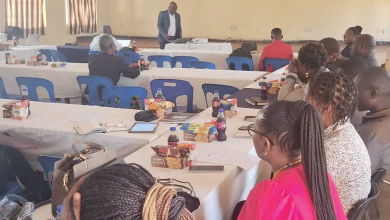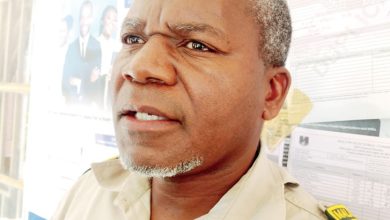Tobacco in 22-year high
Tobacco in 22-year high Malawi’s green gold has delivered its most lucrative season in more than two decades, raking in $517 million (K905 billion) from sales of 205.3 million kilogrammes (kg) of tobacco by August 29.
Our analysis based on Tobacco Commission (TC) data going back to 2003 shows that the only year that comes close on proceeds is 2008 when the country earned $472 million (around K850 billion at present exchange rate) from 194.9 million kilogrammes—driven by strong demand and high prices.
On the other hand, 2003 was the worst year, with just 116.7 million kg sold, yielding $138.6 million (roughly K250 billion at current exchange rate).
In terms of volumes sold, 2009 was the highest at 232 million kg, raking in $433 million (roughly K780 billion).
The last few years have seen fluctuating volumes and revenue, with 2020 experiencing a decline due to the Covid-19 pandemic while 2023 registered moderate recovery.

2025 tobacco selling season at Kanengo in Lilongwe. | Nation
TC spokesperson Telephrous Chigwenembe commended the revenue performance, which he said rode on last year’s price rebound while an agriculture economist said government’s support to smallholder farmers was also a major factor.
However, the price per kg dropped 15.43 percent from $2.98 per kg in the previous growing season to $2.52 this year on average.
Chigwenembe said: “We attribute this year’s high volumes mainly to last year’s performance when prices were very high, which motivated farmers to produce more.”
In 2024, Malawi earned $396.9 million (K694.9 billion) from tobacco at an average price of $2.98 per kg, up from $282.1 million (K494 billion) in 2023 when the average price was $2.14 per kg.
Tama Farmers Trust president Abiel Kalima Banda said high prices in the previous growing season encouraged more farmers to boost production.
“Farmers were enticed by the good prices in the previous growing season,” said Banda. “The prices were more than fair and more farmers were enticed to switch from other crops and grow tobacco this year.”
He also praised TC for dealing with malpractices, particularly the problem of “weekend farmers” inserting foreign materials into bales, a practice known as nesting, which had previously depressed prices.
“A true grower would never do this. We are grateful to the commission for taking steps to curb the malpractice because those low prices affect all of us,” Banda said.
On his part, Mzuzu University agriculture economist Christopher Mbukwa noted that government’s support and vigilance among smallholder farmers further contributed to the growth in volumes.
Apart from the initiatives to deal with nesting, government also extended loans and financial support to farmers through the National Economic Empowerment Fund (Neef)
This year, TC licensed about 54 370 farmers to produce 238.9 million kg of tobacco, exceeding the 213 million kg demanded by buyers. Even so, the performance represents a sharp rise from the previous two years.
Mbukwa observed that this year’s earnings also benefited from the extension of the marketing season, which enabled more crops to be sold. He welcomed the influx of foreign exchange, but stressed that it remains insufficient relative to national demand.
“The improved revenue is important, but it is not enough to meet the local demand for forex,” he said.
Mbukwa urged government to diversify into other export value chains with greater potential, stressing that reliance on tobacco leaves Malawi vulnerable to future shocks.
Speaking separately, Mwapata Institute research fellow Christone Nyondo urged the government to maintain or increase farmer quotas, prioritise raw material imports and tackle smuggling, which siphons off tobacco to neighbouring countries where prices are higher.
“The key is ensuring that our farmers have reasonable quotas and that the produce stays within Malawi,” he said.
Meanwhile, Minister of Agriculture Sam Kawale has said government has put in place strategies and policies to facilitate crop diversification without disrupting the tobacco value-chain.
The tobacco windfall comes at a critical time.
The Reserve Bank of Malawi’s June 2025 Monthly Economic Review reported that total foreign exchange reserves rose to $555.9 million, equivalent to 2.2 months of imports, up from $521 million in May.
However, this remains well below the $584.7 million recorded in June 2024 and far short of the minimum three months’ cover regarded as adequate.
Malawi remains one of the most economically tobacco-dependent countries, with exports accounting for an average 55.6 percent of total merchandise exports.
Tobacco contributes between 12 and 15 percent of the country’s gross domestic product depending on the season. Figures contained in RBM’s fourth quarterly review show that tobacco exports accounted for 57.3 percent of Malawi’s total current account in 2024.
The TC opened the 2025 tobacco selling season on April 9 this year and trading was due to close on Friday, August 29. But the commission extended the season to September 12 to enable farmers sell all their crops.





